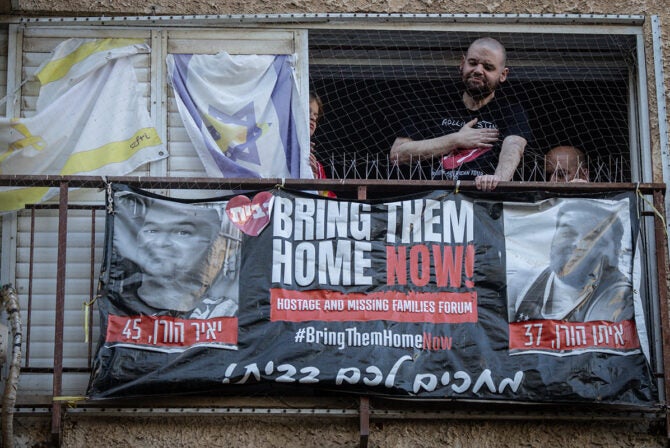I know a lot of us are feeling helpless right now. I certainly am. Between waves of insurmountable grief over the war in Israel, I feel at a loss of what I can do to help from my home here in America. My loved ones in Israel are also doing their best, volunteering their time and money, putting together care packages for the wounded and those caught in the frontlines. The stories of solidarity, of Israelis coming together to help their brethren, are incredibly moving. I too wish I had a way to get out there and pack boxes of supplies, offer smiles of camaraderie through tears, keep my hands and body busy and away from my phone, but unfortunately, I’m stuck here, watching the incomprehensible horrors grow in magnitude everyday.
My body in the West, my heart in the East.
If you, like me, want to do something right now, here are some ways you can help Israelis from wherever you are:
1. Donate. There are a lot of organizations that need your funds right now — from Israeli Magen David Adom, to Zaka, NATAL and ERAN who help those impacted by PTSD and mental health (for transparency’s sake, my mother volunteers at NATAL, and I know that doing these shifts and taking calls from those in distress has helped her feel a sense of purpose in this tragedy), to local hospitals and civilian efforts. Our colleagues at JTA have put together a robust list of organizations doing important work in the country and helping Palestinian victims as well.
2. Reach out to your Israeli and Jewish friends. A lot of us are suffering right now, but a little “how are you holding up?” or “I’m thinking of you” goes a very long way. Human connection is a balm. Don’t always expect a reply — things can be heavy, and some people have been inundated with text messages. I have been on the phone with all my family members, and all the surprise messages and connections from friends and acquaintances have really made my day. On the flip side, I’ve been sending my loved ones pictures of my kids and fun videos as distraction, and they’ve told me it really, really helps. And if you feel like you can hold space and have an emotional, empathetic conversation, I would also reach out to any Palestinian friends and acquaintances you may have.
3. See if there are any Israelis stranded that you can host in your home, or any local families who had a parent leave for reserves duty you can help. If you’re part of any local Jewish Facebook groups or Israeli Facebook groups, you can offer to host Israelis who are currently stranded in the U.S. with the limited flights back home, or help any local Israeli parents who had a co-parent leave for reserves duty.
4. Join a local solidarity rally. If you feel like it’s safe for you to do and that it would be a positive experience for you, I know images of Israelis and allies abroad are immensely helpful for Israelis in the country. Being around fellow Jews and people empathetic to the tragedy might be just what you need, too.
5. Talk to your children. It’s important to make sure that your children are not exposed to information about this conflict through social media. In fact, there are new directives that suggest you may want to have your kids remove their social media apps for now, to limit their exposure to disturbing images. Either way, if your kid is old enough to Google, it’s better that they get the information they can from you. Sivan Zakai has put together a helpful guide on how to talk to children about what’s going on in Israel for Kveller, and you can tailor it to your specific needs.
6. Be judicial and intentional with your use of social media. Try not to share graphic images. I understand the need to show everyone the horrors of what is going on right now, but for those triggered by these images, and for the family of the victims, it’s painful to see them over and over again. Think about the fact that infographics are often not enough to share or understand the full breadth of the situation unfolding. Don’t get into bad faith arguments. In fact, don’t feel like you have to post something if it might be harmful to your mental health. But if you do, share the human stories, and check your sources.
7. Share and find comfort in the beauty of Israeli culture. I’ve been finding a lot of comfort in Israeli music. When I was feeling particularly dark this week, I got in my car and put on Eviatar Banai and let myself cry. It was also an important reminder of how much beautiful art and culture has come out of the Jewish state. Bonus suggestion: Have a little Israeli dance party.
8. Unplug, unwind, take care of yourself. I get it. It’s hard. For many of us, social media has become a place that we go to for escape and entertainment, and our TikTok, Instagram and Facebook feeds can feel like a minefield right now. So try to find comfort other ways.
There’s a reason why pikuach nefesh — saving a life — is an important Jewish value. Especially for those who struggle with their mental health, it’s important for you to protect yourselves. It is totally OK to do nothing right now, and to protect your sanity and space. In fact, I’d go even further — you need to take care of your body and soul. You do not owe it to anyone, no matter how resilient you may feel, to entrench yourself 24/7 in this painful news cycle just because you have a sense of “survivors’ guilt,” or because you feel like it would make you a better ally to those suffering overseas. Watch a TV show. Download a meditation app. Take a long bath. Go on a walk. Take your kids out to the playground. Eat as many cookies as you need. Touch the ground.
Find comfort wherever you can — the Bravo Network, a family craft night, a video game (yes, parents are allowed to play video games, and yes, Candy Crush counts), a delicious food. Give yourself permission to forgo exercise if you need it, or find release in it if you do. I love this Hey Alma article that illustrates all the Jewish ways you can take care of yourself. Self care is a Jewish value, and we can not fix the world without tending to our souls and bodies.








